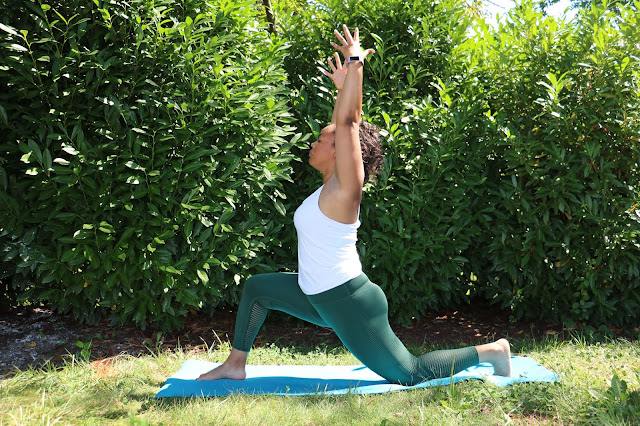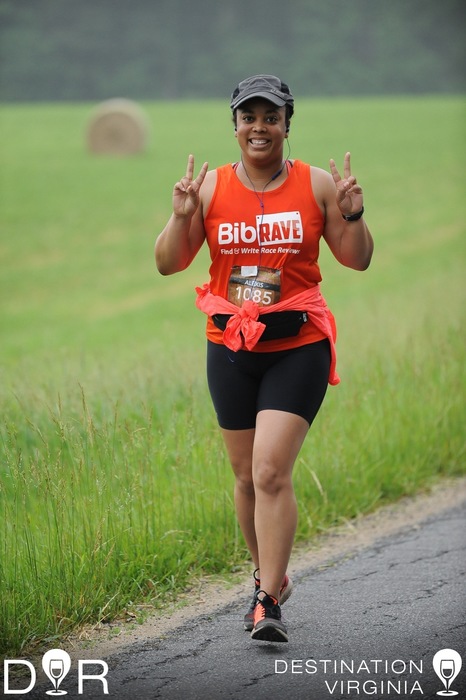What does it mean to “listen to your body?” Learn more about mindfulness and how to tune in to your body’s needs during your yoga practice or workout versus watching everyone else.
We hear it all the time: “Listen to your body.” But in our fast-paced world, where we’re constantly bombarded with messages and notifications, what does this really mean?

Honoring Your “Today Body”
In my fitness and yoga classes, I always encourage my students to listen to their bodies – not just their bodies in general, but what I call their “today body.”
Some days, you’re feeling great! Everything feels open and strong, you’re energized, and you’re ready for a challenge. Some days are just hard. You have turmoil in your personal life, you haven’t had enough sleep the night before, you’re injured, etc.
Can you really expect everything to function the same on a tough day as an ideal day? I think having that expectation can be a recipe for disaster.
Sure, there are times when I’ve had a hard day, and fitness or yoga has served as a salve. I’ve been successful, but, there have been plenty of other times where I’ve had this expectation that everything would feel great. I’ve gotten injured or ended up worse off than where I started emotionally or physically.
Acknowledging your “today body” is a big part of listening to your body.
Body Wisdom: A Neglected Language
Your body is an amazing communicator. It speaks to you through physical sensations, emotions, and cravings. Hunger pangs? That’s your body’s way of saying, “Hey, I need fuel!” Yawning and sluggishness? A clear sign you’re due for some shut-eye. That feeling in your gut? Maybe it’s telling you that you’re not in a safe environment.
The problem is, we often ignore these very clear messages. We push through fatigue, silence hunger pangs with coffee, and “walk it off” when it comes to pain. This disconnect from our internal signals can lead to cascading problems, from burnout and illness to emotional imbalances and challenges in our relationships.

Mindfulness: Reconnecting with Your Body
So, how do we reconnect with this neglected language of our bodies? Here are some tips on how to start:
Slow Down and Check In
Take a few minutes each day – particularly upon waking – to simply be present with yourself. Sit quietly, close your eyes, and focus on your breath. Scan your body for any sensations, tight muscles, or areas of discomfort. This is also a great time to focus on areas where you might feel open and easeful. This helps to establish the state of your “today body.” It doesn’t mean that you can’t change the state of your “today body: from hour to hour, but it’s a great baseline to note, overall, how you’re feeling on a particular day.
Notice Your Patterns
Are there certain situations or people that consistently zap your energy? What foods leave you feeling sluggish? Pay attention to how your body reacts to different stimuli and make adjustments. I noticed that I was getting bad about stress eating around certain work events. Once I acknowledged that this was a pattern, I was able to develop healthier responses to this stress, therefore setting up a positive habit in place of a negative one.
Respect Your Limits
We all have different levels of stamina and resilience. Certainly, there are times when creating some level of discomfort/resistance can help you get stronger physically and/or emotionally, but, it’s important to know when you’re playing it smart and within safe parameters, versus going beyond the point of safety to try to keep up with someone else or show off. Pushing yourself beyond your limits can lead to injury and burnout. Learn to say no when your body is saying “enough.”
Honor Your Cravings (Sometimes)
Cravings can be your body’s way of signaling a nutrient deficiency. If you’re constantly reaching for sugary snacks, it might be a sign you need more complex carbohydrates or healthy fats. Some cravings can have an emotional connection or simply be a sign of dehydration.

Listening to Your Body is a Journey
Learning to listen to your body is a journey, not a destination. Developing a strong mind-body connection takes time and practice. There will be days when you miss the cues, and that’s okay. Be patient with yourself, grant yourself grace, and celebrate your progress along the way. The important thing is to cultivate a sense of curiosity and respect for your body’s wisdom. By tuning in, you’ll be better equipped to make choices that promote your overall health and well-being.
Remember: Your body is one of your greatest assets. Treat your body with love and kindness!
TL; DR: Listening to your body is about developing a strong mind-body connection. It’s about becoming aware of the subtle (and not-so-subtle) signals your body constantly sends you. These signals can be physical sensations like hunger, fatigue, or aches and pains, and they can also manifest as emotional cues like stress, anxiety, or mood changes.
Listening to your body isn’t about being rigid or self-indulgent. It’s about creating a healthy and sustainable relationship with yourself. By tuning in, you can unlock a life filled with more energy, vitality, and joy.